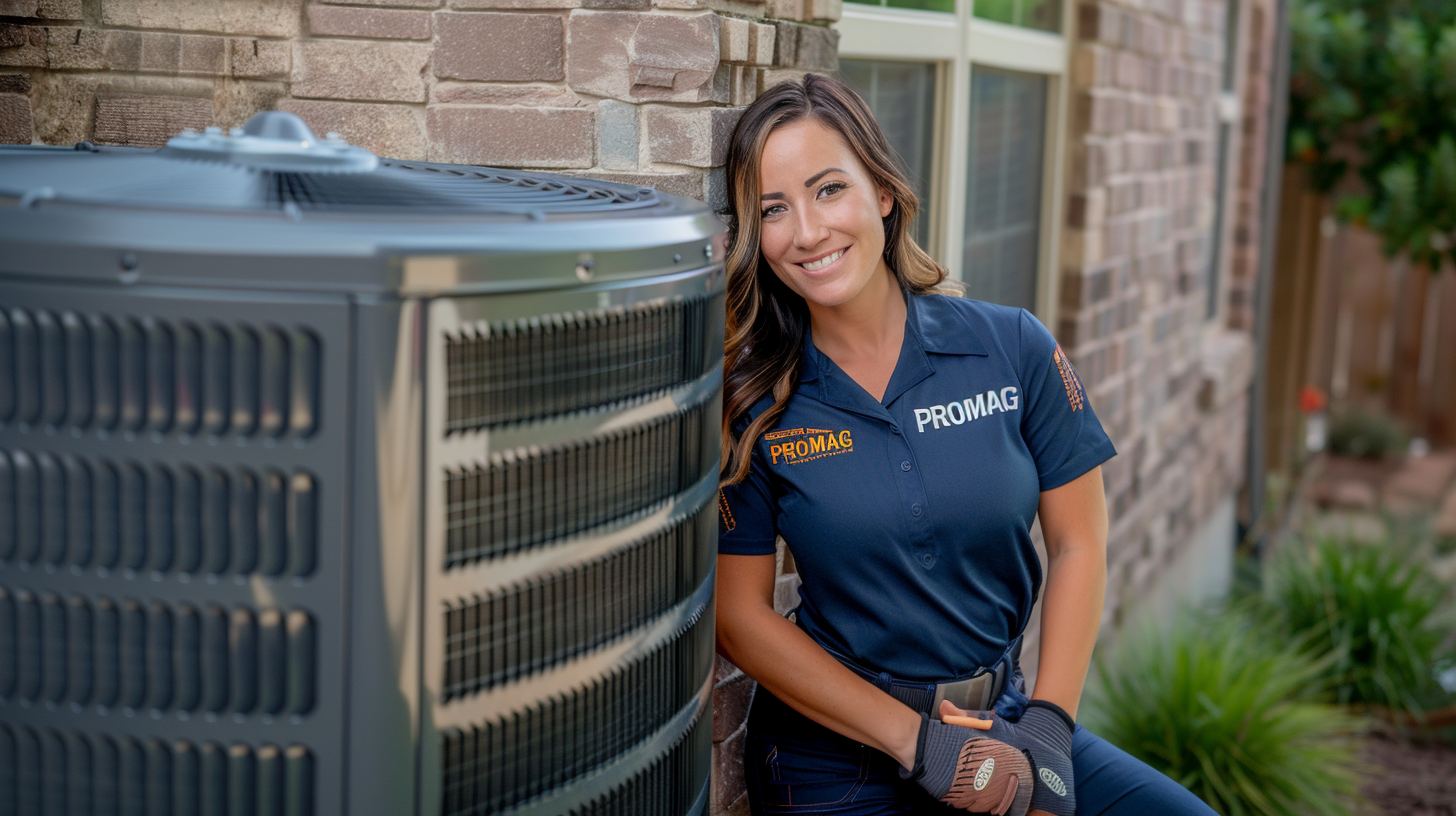How to Pick the Right Cooling And Heating System for Your Demands
Selecting the proper HVAC system is an important decision that needs mindful consideration of different variables. The myriad of system types offered can complicate this procedure, leading one to wonder which path eventually leads to optimum comfort and effectiveness.
Analyze Your Home Size
Examining your home dimension is a crucial very first action in picking the appropriate heating and cooling system. The size of your home straight affects the cooling and heating capacity required for efficient environment control. A cooling and heating system that is too small will have a hard time to preserve comfy temperature levels, bring about raised energy consumption and wear on the unit. Conversely, a large system can lead to short cycling, insufficient humidity control, and inefficient procedure.
To accurately assess your home size, gauge the square video of each space, thinking about aspects such as ceiling height and the layout. Additionally, take into consideration the insulation top quality and the variety of windows, as these elements influence thermal efficiency. Houses with open layout might need different system arrangements contrasted to those with numerous divided rooms.
Using the Manual J lots computation technique can provide an extra accurate estimate of your cooling and heating requires. This method make up different factors, consisting of regional environment, solar gain, and tenancy patterns. By carefully reviewing these elements, you can ensure that your picked heating and cooling system is suitably sized, causing enhanced convenience, energy effectiveness, and longevity of the devices.
Determine Your Budget
Identifying your budget is an essential action in the cooling and heating system choice process, as it sets the criteria for your choices - DMAKS HVAC. A cooling and heating system is a considerable financial investment, and understanding your economic limits will aid narrow down options that fit within your methods
Begin by analyzing not just the first purchase cost yet also setup prices, which can vary substantially relying on the complexity of the job. In addition, consider continuous costs such as upkeep, repairs, and energy usage. A system might show up cost effective originally but can cause greater costs in time if it is much less reliable.
It is advisable to assign a contingency fund for unforeseen costs that might develop throughout installment or first system changes (DMAKS HVAC). In addition, discover funding alternatives or discounts that might be readily available, as these can reduce the worry of ahead of time prices
Ultimately, having a clear spending plan enables you to engage with cooling and heating experts more properly, ensuring you obtain tailored advice that straightens with your financial objectives and home needs. By being diligent concerning your budget, you can make enlightened decisions that boost comfort without jeopardizing financial security.
Evaluate Power Effectiveness
Power effectiveness plays an essential role in the total performance and cost-effectiveness of your a/c system. When selecting a system, it is important to consider its energy effectiveness rankings, as these figures directly influence your utility expenses and ecological impact. Search for systems with a high Seasonal Power Performance Ratio (SEER) for cooling down and a high Yearly Gas Usage Performance (AFUE) ranking for heating. Higher rankings show greater effectiveness, indicating even more comfort for less energy usage.
Furthermore, think about the Power Celebrity accreditation, which symbolizes that the system fulfills rigorous performance standards established by the Epa. Buying an Energy Star-rated heating and cooling system can result in considerable cost savings gradually, especially in areas with extreme temperature fluctuations.
Another element to evaluate is the system's size and ability. An extra-large or small device can bring about inadequacy and boosted power expenses. DMAKS HVAC. Correct sizing, often figured out via a Hands-on J load computation, guarantees that the system operates at optimum performance


Consider Climate and Atmosphere
When choosing a cooling and heating system, it is crucial to consider the regional climate and environmental conditions, as these elements considerably influence the system's performance and efficiency. Different regions experience varying temperature level extremes, moisture degrees, and seasonal adjustments, every one of which effect home heating and cooling demands.

Moreover, regional ecological elements, such as air high quality and potential allergens, must inform your option. Equipments equipped with sophisticated purification technologies can assist minimize pollutants and useful site offer cleaner air. In addition, consider the energy resources available in your area-- some cooling and heating systems are more effective when powered by all-natural gas or renewable resource sources.
Ultimately, aligning your a/c system option with your local climate and environmental considerations will cause boosted convenience, boosted efficiency, and lower energy costs.
Explore System Types and Features
As property owners look for to enhance convenience and effectiveness, discovering the numerous kinds of HVAC systems and their unique features becomes vital. The main this hyperlink sorts of heating and cooling systems include central air conditioning, heatpump, ductless mini-split systems, and furnaces. Each system offers distinct benefits customized to various requirements and preferences.
Central air systems offer uniform cooling throughout a home, making them ideal for bigger rooms. Warm his explanation pumps work as both heating and cooling down remedies, making use of electrical energy to transfer heat, which can cause reduced power prices. Ductless mini-split systems are coming to be significantly preferred because of their flexibility and convenience of installment, enabling property owners to control the temperature level in private rooms without extensive ductwork.

Conclusion
In final thought, choosing the proper cooling and heating system necessitates careful consideration of various elements, including home size, budget plan restrictions, energy effectiveness, regional climate, and offered system types. An extensive evaluation of these aspects makes sure ideal comfort and cost-effectiveness. By complying with a structured method, property owners can make informed decisions that straighten with their details demands and choices, eventually resulting in enhanced indoor air top quality and power cost savings.